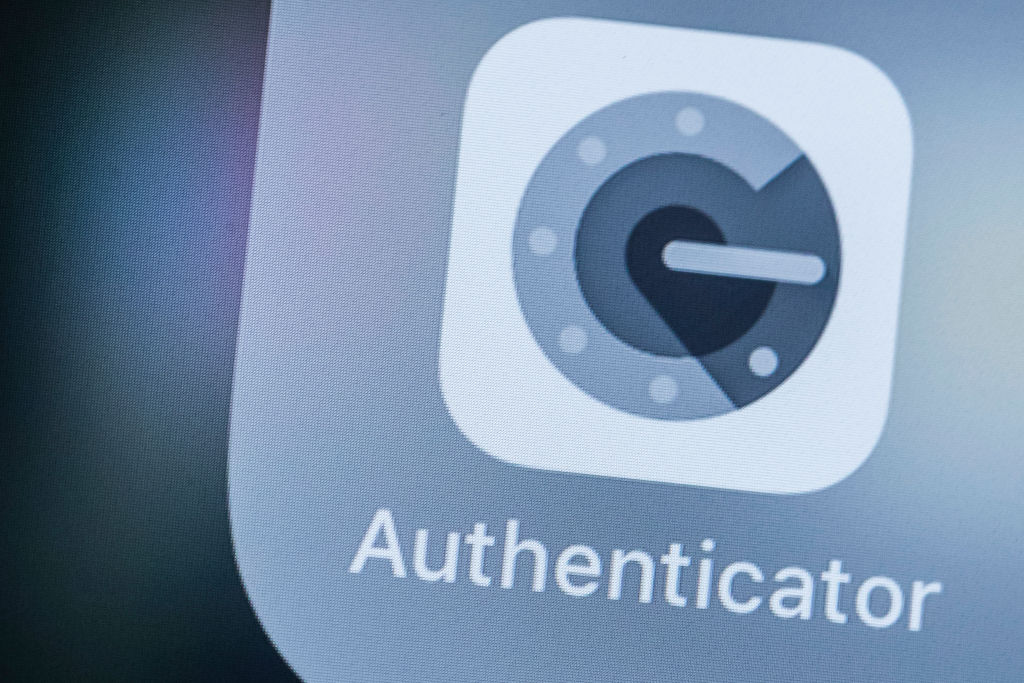Apple facing class action lawsuit because its 2FA is ‘too disruptive’
Californian man accuses the firm of not seeking his consent, and of disrupting access to his personal devices


Apple is facing a class action lawsuit over assertions that its two-factor authentication (2FA) procedure is too disruptive, and poses far too long of an ordeal for users to go through.
Californian man Jay Brodsky has alleged Apple locks users into using 2FA without seeking proper and explicit consent, and says the process as a whole is far too demanding.
He has therefore taken the extraordinary step of filing a lawsuit that seeks 'class action' status, which in the US justice system means allegations made conventionally on behalf of a wide number of individuals.
Brodsky alleges he must first enter his selected password on the device he wants to login to, before entering the password on another independent 'trusted' device.
"Third, optionally, Plaintiff has to select a Trust or Don't Trust pop-up message response," the complaint continues.
"Fourth, Plaintiff then has to wait to receive a six-digit verification code on that second device that is sent by an Apple Server on the internet. Finally, Plaintiff has to input the received six-digit verification code on the first device he is trying to log into. Each login process takes an additional estimated 2-5 or more minutes with 2FA."
The complaint continues to accuse Apple of forcibly implemented 2FA across Brodksy's iPhone and two MacBooks in 2015, without his knowledge or consent. The firm also "forces Plaintiff to use 2FA that requires additional login steps each time Plaintiff's Apple device is powered on" as well as when logging into Apple services, and using third-party apps.
Get the ITPro daily newsletter
Sign up today and you will receive a free copy of our Future Focus 2025 report - the leading guidance on AI, cybersecurity and other IT challenges as per 700+ senior executives
Crucially, once 2FA is enabled by default, through a software update or accidentally, and 14 days have lapsed, there is no mechanism to disable the additional security checks. This "imposes an extraneous logging in procedure" because a user must both remember a password, and have access to a trusted device to receive the six-digit code.
There are five counts which comprise the lawsuit, including trespass to personal property and a violation of the Computer Crime Law. Brodsky's complaint also demands the case be taken to a trial by jury.
The suit, furthermore, demands penalties be applied in accordance with the Computer Fruad and Abuse Act, and that all revenues Apple has "unjustly received as a result of its actions" rightfully belong to those bringing the action.
The scale of this lawsuit, however, pales in comparison to the ongoing legal wrangling between Apple and Qualcomm.
It emerged last month that Apple demanded $1 billion as an 'incentive payment' in 2011, according to testimony from Qualcomm CEO Steve Mollenkempf, when the chipmaker sought to be the sole supplier of modem chips for Apple's iPhone range.

Keumars Afifi-Sabet is a writer and editor that specialises in public sector, cyber security, and cloud computing. He first joined ITPro as a staff writer in April 2018 and eventually became its Features Editor. Although a regular contributor to other tech sites in the past, these days you will find Keumars on LiveScience, where he runs its Technology section.
-
 Cleo attack victim list grows as Hertz confirms customer data stolen
Cleo attack victim list grows as Hertz confirms customer data stolenNews Hertz has confirmed it suffered a data breach as a result of the Cleo zero-day vulnerability in late 2024, with the car rental giant warning that customer data was stolen.
By Ross Kelly
-
 Lateral moves in tech: Why leaders should support employee mobility
Lateral moves in tech: Why leaders should support employee mobilityIn-depth Encouraging staff to switch roles can have long-term benefits for skills in the tech sector
By Keri Allan
-
 PyPI attack: Targeting of repository 'shows no sign of stopping'
PyPI attack: Targeting of repository 'shows no sign of stopping'News Greater collaboration and understanding of attackers’ tactics is key to mitigating open source security threats
By Ross Kelly
-
 Microsoft Authenticator mandates number matching to counter MFA fatigue attacks
Microsoft Authenticator mandates number matching to counter MFA fatigue attacksNews The added layer of complexity aims to keep social engineering at bay
By Connor Jones
-
 Capita's handling of cyber attack shows companies still fail at breach reporting
Capita's handling of cyber attack shows companies still fail at breach reportingAnalysis Capita initially told customers there was “no evidence” of data having been compromised in the March cyber attack
By Ross Kelly
-
 As Google launches passwordless authentication for all, what are the business benefits of passkeys?
As Google launches passwordless authentication for all, what are the business benefits of passkeys?News Google follows Apple in its latest shift to passwordless authentication, but what are the benefits?
By Ross Kelly
-
 Malware being pushed to businesses by search engines remains a pervasive threat
Malware being pushed to businesses by search engines remains a pervasive threatNews High-profile malvertising campaigns in recent months have surged
By Ross Kelly
-
 There's only one way to avoid credential stuffing attacks
There's only one way to avoid credential stuffing attacksOpinion PayPal accounts were breached last year due to a credential stuffing attack, but can PayPal avoid taking responsibility?
By Davey Winder
-
 Google Authenticator 2FA update accused of making service less secure
Google Authenticator 2FA update accused of making service less secureNews Lack of end-to-end encryption in code backup has some developers worried
By Rory Bathgate
-
 Five things to consider before choosing an MFA solution
Five things to consider before choosing an MFA solutionIn-depth Because we all should move on from using “password” as a password
By Rene Millman